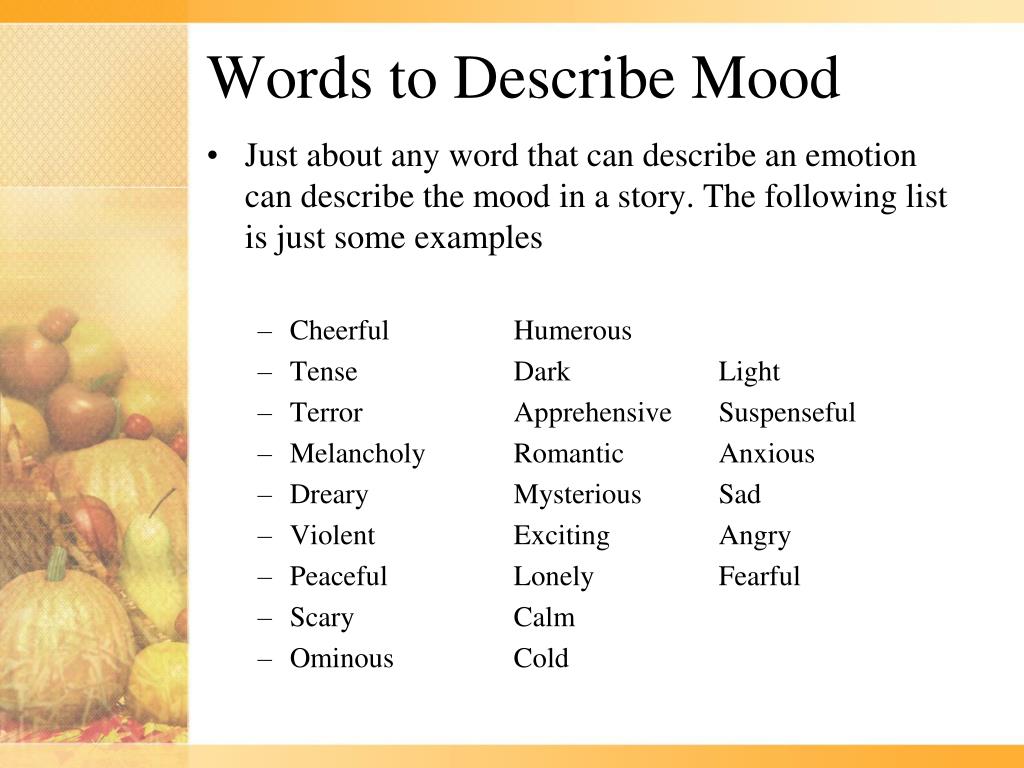
Moods is translated with poetic sensitivity to the flow of the language and the linguistic playfulness by Peter Cole. It pulls a reader in and treats him or her with a respect that is, Hoffmann would argue, with some seriousness, a responsibility for which a writer should be held criminally liable.Īnd although sadness is the underlying mood, reading this book is, quite simply, a joy. Unlike many postmodern works that are so unabashedly metafictional in nature–that is novels that dissect the novel you are reading as you read it– Moods is infused with warmth and humanness. It is both funny and emotionally engaging. Hoffmann is skillfully and enthusiastically playing ideas against one another. Anecdotes lead to reflection which in turn to leads to metafictional contemplation about the nature of literature in general and fiction in particular. So what to make of Moods? Novel or autobiography? The short chapters, most no longer than a couple of paragraphs, sometimes follow thematically or chronologically.

The marsh reeds know the right direction.Īnd because these things are set forth here, it’s a wonder this book is sold for so little. Prayers can be heard everywhere, whether a person says them aloud or not. The inner organs expand and contract, according to their nature. We can now reveal to the readers of this book a deep secret, but they’re not allowed to reveal it to readers of other books.įeet follow one another. His knowledge of and sensitivity to the Japanese koan, sets the tone for the questions he asks and the observations he makes, whether he is pondering the nature of the universe or the order of names in a phone book. Hoffmann, a former professor of Japanese Buddhism at the University of Haifa, spent years studying in Japan, living for a time in a Zen monastery.

The history of his people, family members and friends, comes through as he writes about those he has known, but his worldview transcends religion and political boundaries. Hoffmann is an Israeli writer born in Romania in 1937. If someone asks us to look at something rationally, in a major key–as, for instance, Tellmann did–we get angry. The sentimental melancholy suits us as a suit fits a tailor’s dummy. The reader can no doubt guess what sort of music we’re trying to compose. There is a wide arc of time, reaching to eternity in its metaphysics, spanning some seven decades in the real life of the author (and vicariously for his reader companion). It is the sadness of missing loved ones, whether they have gone away or have died. It is smelled in stairwells and trapped between the crumpled covers of physics textbooks. And the mood that permeates this work is one of sadness. It is a book, as the title tells us, of moods. A faint soft sound like the fur of a foal (of a donkey) wafts through the air, and the colours are all pastel. You stand there, and the streets run beneath you.
#Moods of a story full#
Jokes one tells are revealed in full like that famous rainbow arched through a cloud. The scent of eternity is like that of goulash.

The music he listens to consists of a single sound, like the straight line on the monitor when the hearts stops beating. my father (Andreas Avraham) hides from Francesca, my stepmother, records he bought because the money he receives (in transparent bills) isn’t enough for her. He moves hypnotically from memories to philosophical musings:

He weaves you, the reader, into a story that is, in all it’s assorted bits and pieces, about life–the messy business of living of it and the way a writer can or cannot write about it. And just when you least expect it, he hits you with an observation that catches you off guard. Moods is, if nothing else, a metafictional playground peopled with characters drawn, for the most part, from the life of the author himself–aunts and uncles, childhood loves, neighbours and assorted professionals. This has to be one of the most infectiously readable pieces of experimental fiction that you can imagine. You also have to be prepared to walk, lockstep, for the most part, with the author who invites you to join him under the umbrella of the third person plural–not the royal “we”–but something much more intimate except, of course, when it makes no sense to speak in the plural and the author has to step aside and admit that, by “we” he means “I”. You will encounter a story, no many stories, and stories within stories, working their way in and out of 191 micro chapters. When we, that is to say you, approach a work like Moods, by Yoel Hoffman, you have to be prepared to relinquish everything you expect a novel to be.


 0 kommentar(er)
0 kommentar(er)
